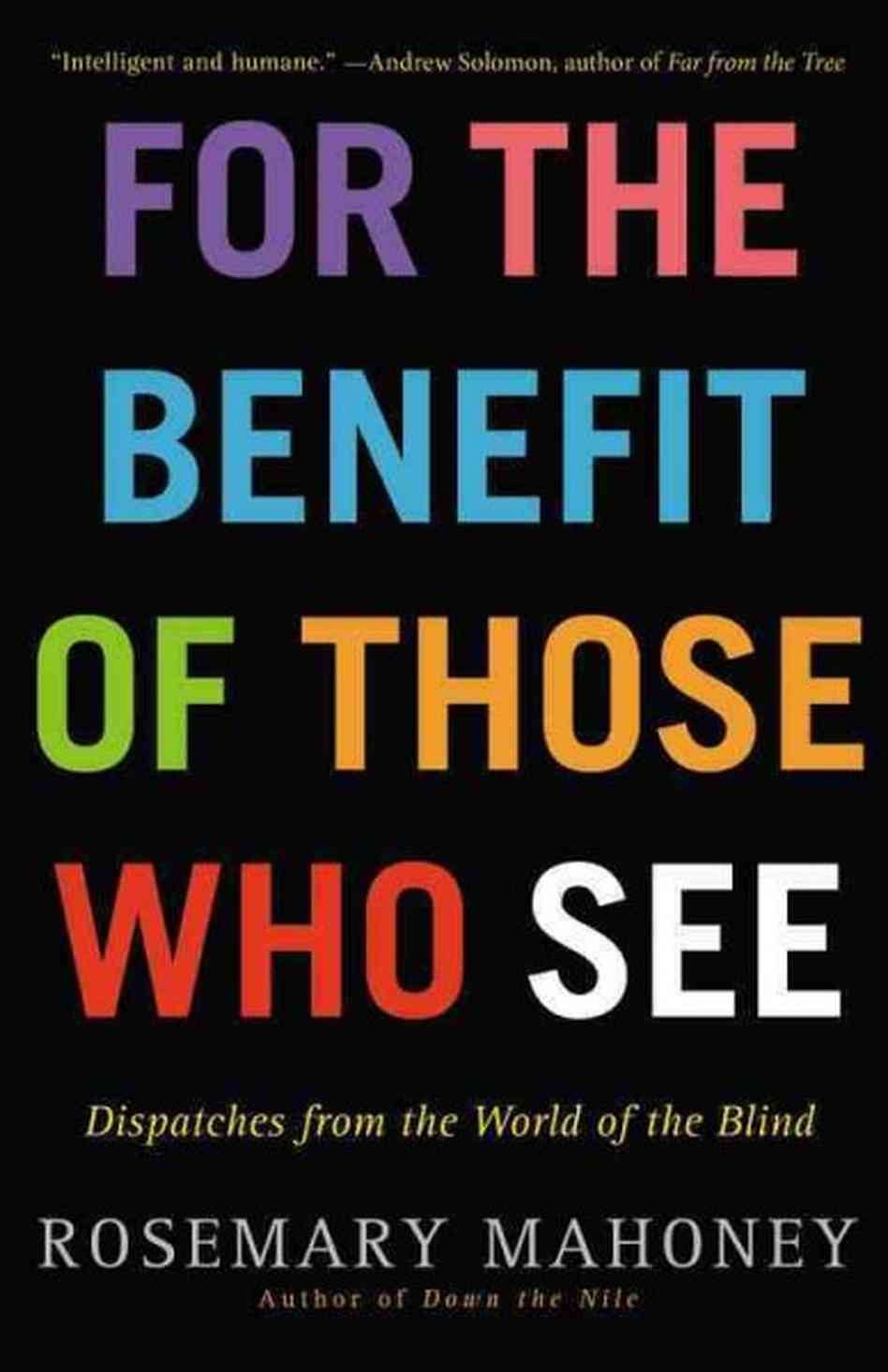In 2005, O, The Oprah Magazine assigned Rosemary Mahoney to profile Sabriye Tenberken, a German social worker who founded Braille Without Borders in Tibet. Mahoney immersed herself in the task, agreeing to an excursion with two students from the Tibetan school who led her around Lhasa blindfolded. Mahoney said she realized “how little notice I paid to sounds, to smells, indeed to the entire world that lay beyond my ability to see.”
After finishing the assignment, Mahoney volunteered to teach English at an off-shoot of Braille Without Borders in Kerala, India, where she began to understand blindness as an identity, not necessarily a disease that needed a cure.
Mahoney’s latest book, For the Benefit of Those Who See: Dispatches from the World of the Blind, collects and builds upon those experiences. Arthur Evenchik, who coordinates the Emerging Scholars Program at Case Western Reserve University, crafted a meditative review in which he praises Mahoney for her introspective look at what divides the blind and the sighted. It is not as much as we might think. Here, an excerpt:
___________
Over time, her students’ blindness becomes to Mahoney what it is to them — a fact of life. “I became used to the sound of white canes scraping and tapping down the walkway outside my bedroom door, to the clacking sound the folded canes made as the students shook them back to their upright positions at the end of a class,” she writes. Later, she adds, “I got used to the shocking gunshot sounds of screen doors slamming and to shouting, ‘Quit letting those screen doors slam! I thought you blind people didn’t like loud noises.’ I got used to the laughter and the hoots I received in response to that comment.” She would not have been capable of such irreverence before she met Tenberken; back then, she had worried about violating some arcane etiquette for dealing with the blind.
She admires her students’ skill in navigating the physical world, their fearlessness, their patience and self-possession. At the same time, she notices the quirks and mishaps that make their patience a necessary virtue. The students leave “horizontal finger streaks” on the windows as they feel their way along an outdoor corridor. They have “scarred shins and bruised knees.” When they cross the dining hall bearing full cups of tea, Mahoney darts out of their path. But anyone expecting “constant accidents” among the blind — as the writer perhaps once did — would be mistaken: “Nobody fell off a balcony, got electrocuted, caused the school to go up in flames. Nobody drowned while swimming in the lake. Nobody got lost on expeditions into the city. And nobody ever used blindness as an excuse for anything.”


